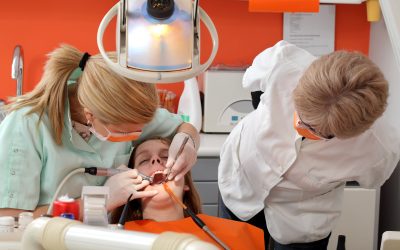According to statistics, everyone faces dental sensitivity in one way or another at some point in their lifetime. Keeping that in mind, every third patient suffers permanent dental hypersensitivity, leading to discomfort. Sometimes, this is a sign of a serious dental problem. Seeing a Wichita Dentist can help you figure out the cause.
What is tooth sensitivity?
Tooth sensitivity, also known as hypersensitivity, is an unpleasant and even painful sensation that arises when you consume sour or sweet food, as well as hot or cold, or even in the process of chewing food. Sometimes the sensitivity manifests itself even during inhaling cold air. The most common causes of sensitive teeth is caries and cavities, exposure of the necks and roots of the teeth, as well as damage to the enamel. The presence of V-shaped defects, demineralized areas and increased abrasion of the teeth may also provoke an increase in sensitivity. In some cases, hypersensitivity can be manifested in the use of large amounts of acidic foods and beverages, such as natural citrus juices or aggressive drinks such as Coca-Cola and others. This is due to the fact that acid hits the enamel and becomes more porous.
Tooth sensitivity after dental treatment
Sometimes, hypersensitivity manifests after dental treatment. For example, one factor that increases sensitivity is bleaching. Also tooth sensitivity can be caused by periodontal disease, in such cases it is recommended to remove supragingival and subgingival deposits, followed by fluorination of the teeth. These can come in the form of special rinses, toothpastes and gels that reduce tooth sensitivity. This involves using chemically active bleaching gel. In such cases, a Wichita Dentist may recommend the use of a desensitizer. To reduce hypersensitivity after professional whitening and occupational therapy, dentists often perform re-mineralization therapy.
Tips to reduce tooth sensitivity
As mentioned above, increased tooth sensitivity should be sought after by a dentist, but there are some tips that will help you reduce hypersensitivity. Firstly, you should properly brush your teeth without damaging them. Dentists recommend choosing a soft toothbrush with rounded bristles. Secondly, if tooth sensitivity is your problem, you should refrain from using bleach and abrasive pastes. Third, you should limit the use of acidic or corrosive drinks, as well as trying to not provoke damage through temperature changes. Fourth, schedule regular check-ups with your local dentist. For more information contact Dental Corner today.



